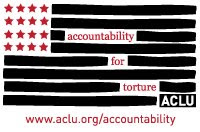I can't say that I understand why surprise is being expressed at Washington's backing of Uribe. Anyway....Both [Colombia's President] Uribe and [Venezuela's president] Chavez have expressed their desires to sit down and negotiate a solution to [their border disputes]. While Uribe seeks a negotiation with the participation of other regional powers, President Chavez hopes the dispute can be solved bilaterally. Surprisingly enough, the US is "100 percent" behind President Uribe regarding this matter, a comment which was subsequently criticized by President Chavez. The OAS, Mexico, Canada, Brazil and Peru have offered to serve as mediators to facilitate a solution to the crisis.
To which I say, good luck Huck.In a related move, Venezuela tightened security along its border with Colombia to prevent future incursions by drug dealers, paramilitary groups, and guerrillas into its territory.
Given last week's rift between Colombia and Venezuela, Senator Bill Nelson (D-FL) "showed that the United States should be wary of overtures by Venezuelan President Hugo Chávez, and …called for reduced U.S. dependence on Venezuelan oil." Nelson also asked other Latin American nations to come together to pressure President Chavez to move towards the center. Nelson traveled last week to South America with Senators Christopher Dodd (D-Conn), and Lincoln Chafee (R-R.I.) to discuss issues of importance with regional leaders. The Senators met with President Chavez and discussed anti-terrorism and narcotrafficking issues. Following the meetings, Senator Dodd expressed his desire to improve relations with Venezuela and made it is duty to talk to Secretary of State Condoleezza Rice about a
rapprochement with the Venezuelan government.
Diehl also paints the Reagan administration's interference in South American countries, including the infamous illegal arms trades and support of death squads, as a great accomplishment for democracy.In the Washington Post's second unbalanced and negative opinion piece on Venezuela this month, columnist Jackson Diehl lists a series of factual errors that is unsuitable for a reputable publication. While Diehl is entitled to his critical opinion on Venezuela, his factual mistakes need to be addressed. The Op-Ed claims that the Venezuelan government has made an effort to “criminalize opposition.” The evidence does simply not support this sweeping statement. After surviving a coup attempt and a crippling oil strike, the administration has shown remarkable restraint. [...] The piece goes on to claim that oil trade with Cuba is designed to “prop up the once-beleaguered Cuban dictatorship of Fidel Castro.” All Latin American nations have some sort of trade arrangement with Cuba. Yes, Venezuela sells oil to the Cubans, as it does throughout the Caribbean, but to say that this constitutes wholesale economic support of the Cuban economy is not accurate. Similarly the Op-Ed rehashes long-discredited claims that socialist movements in Bolivia are funded by the Chavez administration. There has been no evidence that this is the case, and it is irresponsible to print it as an undisputed fact.
Neither Diehl nor VenInfo mention that the oil sold to Cuba is part of a larger trade in which Cuba provides much needed doctors and educational material to Venezuela.
This is Diehl's characterization of El Presidenté:
While I have my own concerns about some of President Chávez' methods and intentions, that is not an accurate portrayal of what has been happening. The media reform law was created, according to the government, to block violence and sex on TV - censorship yes, but nothing we don't have here. The opposition claims it was another step to censor opposition.In Venezuela, President Hugo Chavez has responded to his victory in a controversial recall referendum by aggressively moving to eliminate the independence of the media and judiciary, criminalize opposition, and establish state control over the economy. He is also using his country's surging oil revenue to prop up the once-beleaguered Cuban dictatorship of Fidel Castro, sponsor anti-democratic movements in other Latin countries and buy influence around the region. Last week he literally declared war against privately owned farms, sending troops to occupy one of the country's largest cattle ranches.
I'm not certain about the criminalization of opposition. It's a bit confusing. I saw with my own eyes, thousands of people marching in the streets in Caracas in opposition to Chávez' government, as well as film clips of many other such marches. They are always permitted. I'm not aware of any disappeared or opposition prisoners, and the opposition doesn't even claim that. Five of the seven TV stations in Venezuela are privately owned opposition companies. They have not been censored or shut down. It could be, however, that Diehl is referring to a law that makes it a crime to publicly "insult" any political official. A bizarre law that I cannot defend, to be sure. I don't know if it was one on the books before Chávez came to office or not. At any rate, Venezuela has a National Assembly that makes the laws, and the people elect the National Assembly - democratically.
Why shouldn't the oil of the country be controlled by the state if the state is a democracy? The natural resources of a country should belong to the people of that country, not a few private owners. But, that's an anti-American sentiment, isn't it?
And, here's the story on the "war against privately owned farms"...
Actally, if any president received a mandate with his reelection, it was President Chávez. Even though he handily won the recent referendum, he won fewer votes than he had gotten when he was first elected (some 90% of the vote). One of the reasons for the loss of votes was that the people did not think he was pursuing his campaign promises nor making good on the new constitutional laws that were meant to provide better conditions and opportunities for Venezuela's huge population of poor people. If he is now getting agressive in that pursuit, it's likely to be in response to the will of a large majority of the citizens.Over the weekend, Cojedes state governor Jhonny Yánez, with about 200 national guard and police forces, entered the El Charcote cattle ranch, which is owned by the British food conglomerate Vestey Group, Ltd. The “intervention,” as it is called in Venezuela, is meant to settle a land dispute between the government and the ranch.
The governor of Cojedes state says that the purpose of the intervention is to “establish order where currently there is anarchy,” in reference to the reliability of land titles in the state. The state government plans 15 other interventions of large estates, in which property titles are to be clarified.[...]
The manager of the cattle ranch, Diana Dos Santos, told the press that she is relying on the state government to solve the land dispute and that the action has not violated the ranchers’ human rights.
[...]
Today, in a large event held in an indoor arena in Caracas, with thousands of peasants from various parts of Venezuela, Chavez announced the issuing of a new decree that would move ahead the government’s land reform process. The decree would create a national commission to coordinate with regional governments the assessment of the ownership relations, sizes, and usage of large landed estates in Venezuela.
The decree’s objective is to “consolidate the process of reorganizing landownership and usage, so as to progressively eliminate large poorly used landed estates [latifundios].”
According to Chavez, this decree would be the beginning of a war against latifundios.[...]
Unused agricultural land of over 100 to 5,000 hectares, depending on the land quality, can be redistributed according to Venezuela’s land law, which has been on the books since 2001.
So far, however, no land has been redistributed according to this provision. Rather, Venezuela’s land reform has until now exclusively involved the redistribution of state owned land. Land disputes, which have occurred in several cases, have always been disputes between the government and land owners, over who actually has title to the land in question.[...]
According to Pimentel, the land definitely does not belong to the Vestey Group because it was bought by Venezuela’s dictator Juan Vicente Gomez in 1936. All of Gomez’s land was later turned over to the state.
[...]
If the Cojedes commission finds that the land titles are in order, but that the ranch does not use all of its land, then the government could decide to give a portion of the land to landless farmers. According to Venezuelan law, the current owners would have to be compensated at market prices for the redistributed land.
Venezuelanalysis article
Previous Venezuela posts
More on Venezuela
Update 1/19/05 5:30pm: I just reread what I've written in this post, and I need to correct something: the opposition actually do claim that the government has political prisoners - but I'm unaware of any claims they make to disappearances.








No comments:
Post a Comment
Comments are moderated. There may be some delay before your comment is published. It all depends on how much time M has in the day. But please comment!